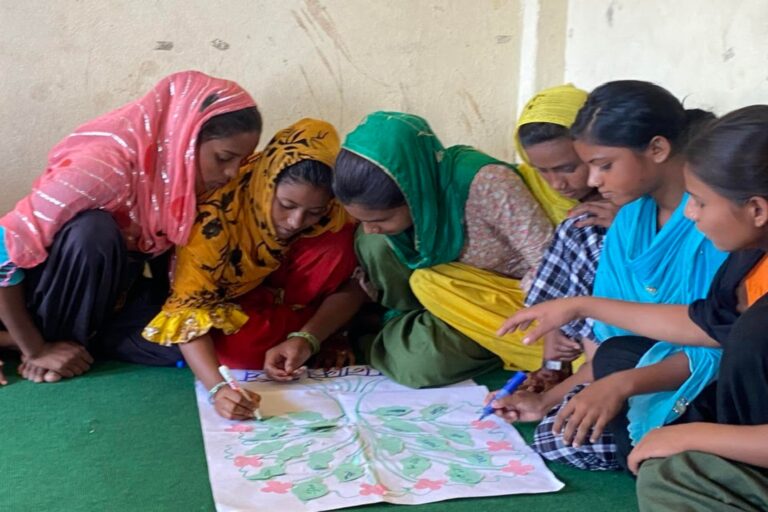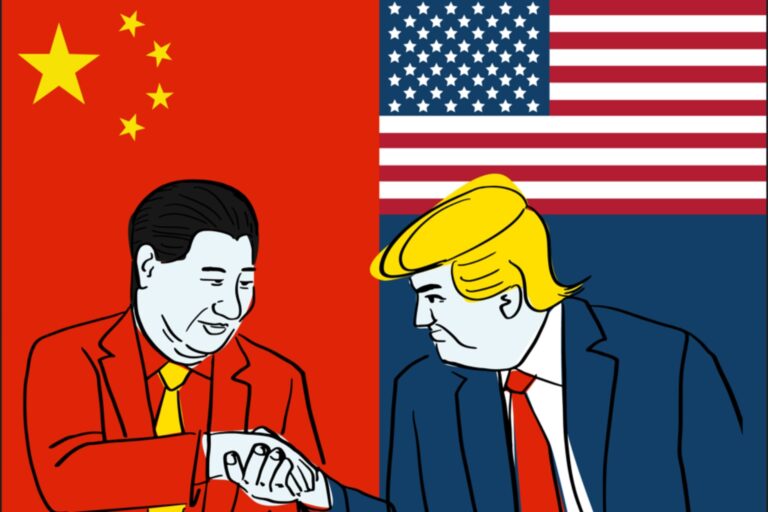Najibullah Gulabzoi is a former Donovan Group Research Fellow at USSOCOM (2017) and a former United Nations official in Afghanistan. He is an independent researcher on foreign aid, political and institutional development in Afghanistan.
Earlier this year, the United States Ambassador to the United Nations, Nikki Haley, threatened U.S. foreign aid recipient countries that if they opposed U.S. positions in the United Nations General Assembly (UNGA) or its global objectives, the U.S. would cut its foreign assistance to these countries.[1] After all, as the argument that underpins this threat runs, aid should be provided to U.S.-friendly countries, not to those that oppose the United States, as manifested through their rhetoric and UN voting patterns.
Taking UNGA voting patterns and states’ support or opposition as an indication of cooperation or opposition, however, is flawed. If the logic of “all politics is local” holds,[2] which it does in the case of developing countries, a policy shift to predicate foreign assistance on favorable policy stances of recipient countries and their voting in the UNGA will be counterproductive and will most likely fail. Elites in the recipient countries,[3] particularly in weak and fragile states, are constrained by their domestic politics and public opinion and it is highly unlikely that they would support the United States in its controversial positions in the UN. Additionally, aid recipient countries’ behavior and voting patterns at the UNGA often does not reflect genuine opposition to the U.S. policy positions, but are rather in line with their domestic public opinion, particularly when controversial subjects are up for voting and discussion.
Foreign aid allocations and UN General Assembly voting patterns
Conventional knowledge has it that aid has been used as a strategic instrument to induce support and favorable policy stances from the recipient countries in the UNGA. During the Cold War, the United States provided aid to less developed countries to reward their accordance with U.S. policy positions when they voted in the UNGA.[4] The Soviet Union also used aid to garner political support in the UN and to buy off uncommitted countries—leading to what some scholars described as a major conflict between the East and West in the UNGA.[5] Shortly after the end of the Cold War, a period that Samuel P. Huntington called the “unipolar moment,”[6] the United States provided aid to countries that had previously voted against the United States in the UNGA and their elites had largely contested U.S. foreign policy interests and values.[7]
In recent times, however, the United States has not been the only donor state that has pursued strategic and political objectives in the UN by allocating aid to countries who have voting affinity in the UNGA. Japan, another of the top five donor countries, has been consistently providing aid and development assistance to countries that support its policy stances in UNGA voting.[8] However, recent research has shown that tying aid to UNGA voting has largely failed to produce intended policy affinity between the donor and the recipient countries. Grants, general budget support, and untied aid may buy short-term support in the UNGA,[9] but they are highly inefficient and less effective in producing the desired results in the recipient countries.[10] Analyzing the data on aid commitments and disbursements and UNGA voting patterns during and after the Cold War, a recent study found that the United States has no incentive to provide aid to countries that already support its policy positions in the UNGA. U.S. bilateral aid would likely induce more favorable votes when it is provided to countries that do not support U.S. policy stances.[11] Others have argued that bilateral aid, when provided in the form of grants, general budget support, and untied foreign assistance, may be able to buy votes from the recipient countries in the UNGA, as the elites in those countries have more discretion regarding disbursements.[12]
Why foreign aid is beyond the politics of the UN
Almost all scholars, even those that contest the U.S. benign hegemony, have agreed that the United States plays an indispensable role as a superpower in tackling global challenges.[13] Foreign assistance is one instrument with which the United States has helped rebuild shattered societies, respond to complex humanitarian emergencies, prevent the spread of disease, and help societies recover from myriad adversities. U.S. foreign aid has been motivated by at least two broad objectives: furthering the foreign policy interests of the United States—promoting democracy, free markets, and human rights, and reducing violence—and improving the lives of people in the developing world.[14] The Foreign Assistance Act of 1961 also commits the United States to eliminate “hunger, poverty, illness and ignorance.”[15] Hence, U.S. aid has been driven partly by politics and partly by altruism; in its totality, foreign assistance has continued to prevent the relapse of many fragile and post-conflict societies into conflict, improved lives, and continued to underpin the U.S. hegemony in some of the key regions of the world.
One may argue that a different policy stance or an opposing vote in the UNGA against the United States by a less-developed country, to which the United States provides aid, would not be, in and of itself, a plausible indication for balancing against the United States or contesting its foreign policy interests in various regions of the world. For example, in the most recent UNGA resolution, GA/11995, most of the close allies of the United States voted against the United States. Even Afghanistan, whose survival as a state largely hinges on U.S. aid and military assistance, voted against the U.S. stance on Jerusalem.[16] The list of countries that voted against the United States also includes Egypt—one of the key recipients of U.S. bilateral aid—Saudi Arabia, France, and Germany—U.S. allies in the Middle East and Western Europe. Political elites in countries such as Afghanistan, Egypt, and Saudi Arabia are constrained more by their domestic public opinion and the unrest that a pro-U.S. policy stance in the UNGA may cause in their domestic affairs given the highly controversial and sensitive nature of some of the U.S. positions in the United Nations General Assembly. Therefore, a vote against the U.S. position in the UNGA may not be an indicator of states moving away from the United States and allying themselves to regional powers such as China and Russia. Neither do they challenge U.S. preeminence in their respective regions.
U.S. aid goes largely to friendly developing countries that are, to echo Douglass C. North, limited access orders,[17] where a dominant coalition of elites who have seized the state apparatuses and represent their governments may very well oppose a certain U.S. policy position in the UNGA for myriad factional or domestic reasons. However, U.S. bilateral aid, in line with the precepts of the Foreign Assistance Act of 1961 and the Millennium Challenge Corporation (MCC), may allow these societies to transform and move toward stability and reduce violence. Therefore, cutting U.S. aid to less-developed countries as a result of a UNGA vote against the U.S. policy stance may also contravene the precepts of the Foreign Assistance Act of 1961 and MCC. A policy to cut U.S. aid to less-developed countries that oppose U.S. policy interests in the UNGA will complicate the committed allocations and ongoing disbursements, which are mostly administered by USAID, by creating a highly unpredictable environment. The U.S. aid-managing agencies, such as USAID, may not know when a recipient country would be perceived as against the U.S. in the UNGA and it is unclear how they would be able to cut committed allocations and ongoing disbursements.
It is true that there is already an expanding literature arguing that foreign aid is on the whole counterproductive, provided more politically and that there is less accountability on how these partnerships are implemented in the developing world. Conditioning U.S. aid on the recipient countries’ pro-U.S. policy positions in the UNGA will remove any modicum of altruism in U.S. foreign assistance and render it entirely political, putting the United States, a superpower, on a par with countries such as China and Russia. U.S. hegemony—if one were to borrow Antonio Gramsci’s definition—is underpinned more by the power of its ideas, and values that a growing number of societies in the less-developed world see them as the only way to their progress and development.[18] Democracy, human rights, free markets, and other political and social freedoms that represent the United States and the other Western democracies are values and ideas that are equally shared by a growing number of populations in the developing world. The United States will still need to play its indispensable role in leading the world in tackling global challenges—conflict, transnational security threats, human rights violations, hunger and famine, and diseases.[19]
Therefore, tying U.S. aid to individual recipient countries’ voting patterns in the UNGA and cutting aid to countries that may, at some point, vote against a U.S. policy position in the UN, is short-sighted, counterproductive, and would ultimately deprive the United States of a great tool with which it has so uniquely built its greatness around the world and the world around it: foreign aid. It would be a blatant deviation from centuries of tradition: the rebuilding of shattered societies.
Footnotes
[1] Jessica Trisko Darden, “Should the U.S. only give foreign aid to its friends? Well, define ‘friends’.” The Washington Post, February 15, 2018, accessed July 18, 2018, https://www.washingtonpost.com/news/monkey-cage/wp/2018/02/15/should-the-u-s-only-give-foreign-aid-to-its-friends-well-define-friends/?utm_term=.54ff779f56b1.
[2] See Tip O’Neill and Gary Hymel, All Politics Is Local: And Other Rules of the Game, New York: Times Books, 1994.
[3] Elites – members of dominant groups in autocratic societies – include the al-Saud family in Saudi Arabia, the Ayatollahs in Iran, army generals in Pakistan, and autocrats in Central Asia who rely on networks of patronage and clientage to help them control resources, consolidate power and establish basic political orders.
[4] See Byungwon Woo and Eunbin Chung, “Aid for Vote? United Nations General Assembly Voting and American Aid Allocation,” Political Studies Association 66(4): 2-7, November 3, 2017.
[5] Hanna Newcombe, Michael Ross, and Alan G. Newcombe, “Voting Patterns in the United Nations,” International Organization 24(1): 100-121, January 24, 1970.
[6] Samuel P. Huntington, “The Lonely Superpower,” Foreign Affairs (March/April 1999): 35-48.
[7] Axel Dreher, Peter Nunnenkamp, and Rainer Thiele, “Does US aid buy UN general assembly votes? A disaggregated analysis,” Public Choice 136(1-2): 139-164, February 19, 2008.
[8] Alberto Alesina and David Dollar, “Who Gives Aid to Whom and Why?”, Journal of Economic Growth 5(1): 33-63, 2000.
[9] Dreher et al, “Does US aid buy UN general assembly votes?”
[10] Alesina and Dollar, “Who Gives Aid to Whom and Why?”
[11] Woo and Chung, “Aid for Vote?”
[12] Dreher et al, “Does US aid buy UN general assembly votes?”
[13] Huntington, “The Lonely Superpower.”
[14] “Mission Vission and Values,” USAID, accessed December 20, 2018. https://www.usaid.gov/who-we-are/mission-vision-values.
[15] Office of the Legislative Counsel, “Foreign Assistance Act of 1961,” https://legcounsel.house.gov/Comps/Foreign%20Assistance%20Act%20Of%201961.pdf.
[16] “General Assembly Overwhelmingly Adopts Resolution Asking Nations Not to Locate Diplomatic Missions in Jerusalem,” United Nations, December 21, 2017, https://www.un.org/press/en/2017/ga11995.doc.htm.
[17] See Douglass C. North, John J. Wallis, Steven B. Webb, and Barry R. Weingast, “Limited Access Orders in the Developing World: A New Approach to the Problems of Development,” World Bank, November 2007, https://doi.org/10.1596/1813-9450-4359.
[18] Thomas R. Bates, “Gramsci and the Theory of Hegemony,” Journal of the History of Ideas 36(2): 351-266, April-June 1975.
[19] Office of the Legislative Counsel, “Foreign Assistance Act of 1961.”



